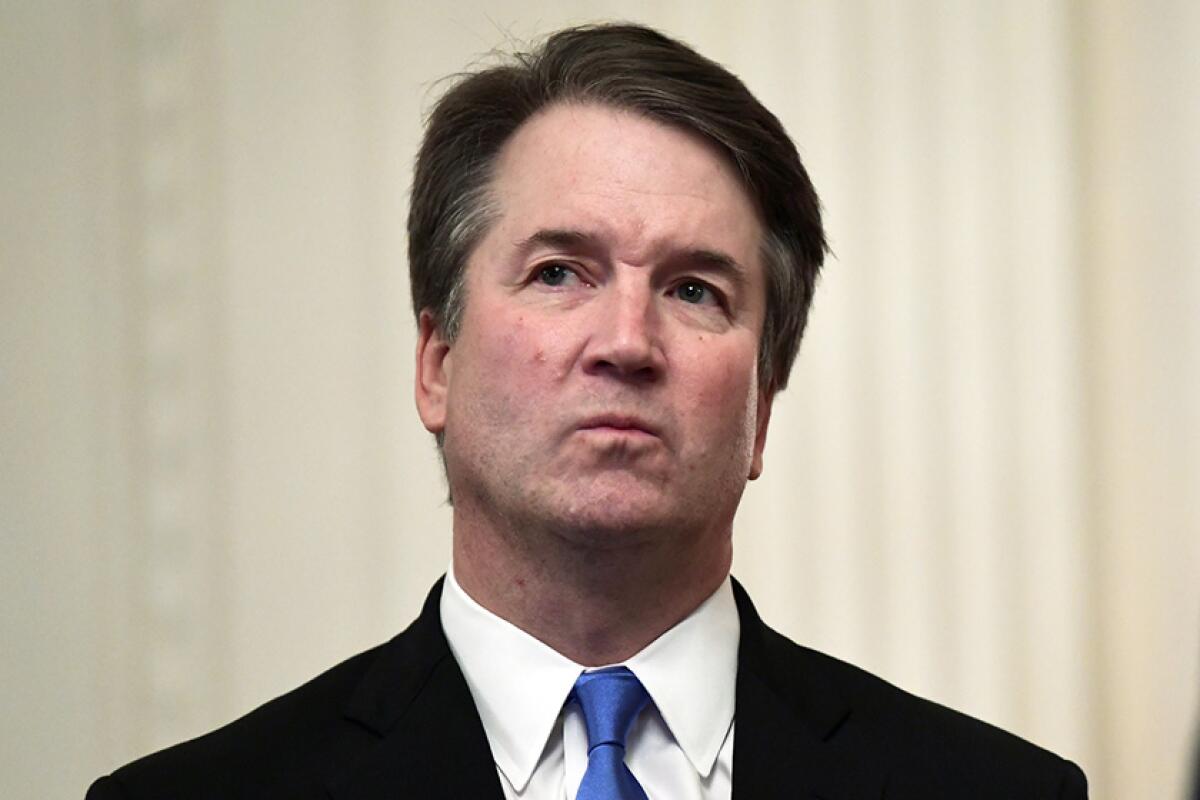Editorial: The Supreme Court hits and misses in two criminal cases

- Share via
On Monday the Supreme Court bolstered the 4th Amendment’s ban on “unreasonable searches and seizures,” ruling that police officers may not enter a home without a warrant and seize property as part of their so-called “community caretaking” role. But in another decision handed down that day, the court was depressingly less protective of the right to a fair trial guaranteed by the 6th Amendment.
In the 4th Amendment case, the court ruled in favor of Edward Caniglia, a Rhode Island man whose guns were confiscated by police who entered his home without a warrant after his wife expressed concern that he might kill himself.
Writing for the court, Justice Clarence Thomas said the so-called “community caretaking” exception to the warrant requirement — established in a 1973 decision about the search of an impounded rental car — didn’t extend to searches of the home. Thomas noted that the court has said that the “very core” of the 4th Amendment’s protection was “the right of a man to retreat into his own home and there be free from unreasonable governmental intrusion.”
Unfortunately, a majority of the court was less sensitive to constitutional rights in another new ruling, this one involving the right to a jury trial.
Last year the court ruled that the 6th Amendment required that juries in state courts must be unanimous when they convict a defendant of a serious crime. But on Monday, by a 6-3 vote, the justices refused to apply that ruling retroactively in the case of Thedrick Edwards, who was in convicted in 2007 by a non-unanimous jury of armed robbery, rape, and kidnapping. Edwards had sought to overturn his conviction in a federal habeas corpus proceeding.
Writing for the majority, Justice Brett M. Kavanaugh said that under Supreme Court precedents, decisions announcing a “new procedural rule” were not retroactive in cases such as Edwards’. Kavanaugh’s opinion seemed to nullify a 1989 decision allowing retroactivity for “watershed rules” of criminal procedure implicating fundamental fairness.
Kavanaugh justified the decision by arguing that applying the court’s 2020 decision retroactively “would potentially overturn decades of convictions” in states that allowed non-unanimous jury verdicts. But that’s a matter of speculation.
More to the point, defendants such as Edwards shouldn’t be denied a new trial because they were convicted before the court decided that unanimity was essential. As Justice Elena Kagan put it in a powerful dissenting opinion: “If the right to a unanimous jury is so fundamental — if a verdict rendered by a divided jury is ‘no verdict at all’ — then Thedrick Edwards should not spend his life behind bars over two jurors’ opposition.”
More to Read
A cure for the common opinion
Get thought-provoking perspectives with our weekly newsletter.
You may occasionally receive promotional content from the Los Angeles Times.










